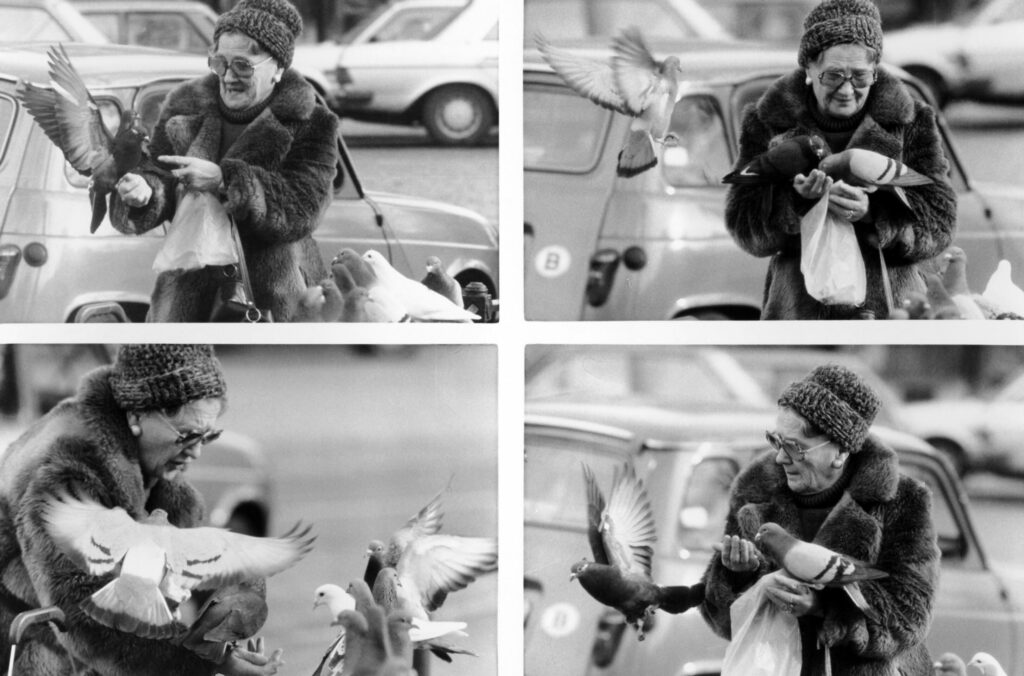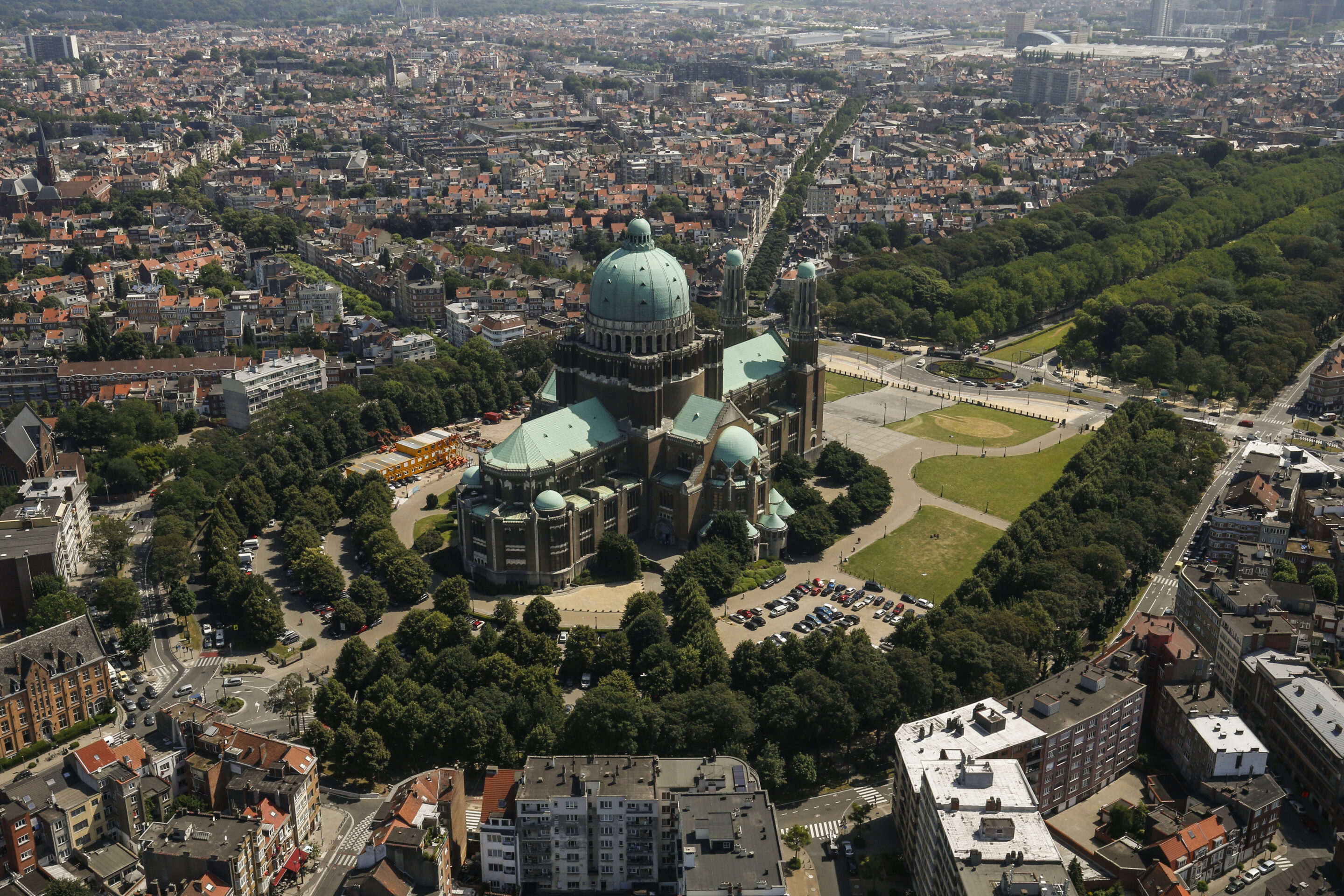“What are you going to do about all the pigeon shit!?”
Even for someone with a certain knack for promptly sourcing pithy and politically-saleable answers to constituents’ queries, my mind drew a blank. Surely she knew that the commune doesn’t control the birds? But the agitation and frustration was written on her face – this was a deadly serious question.
“Well, Madame, there’s only so much we can do on that matter… but when it comes to cleanliness in general, I hope you’ll agree that Koekelberg is doing pretty well? Especially when you compare the streets here with how Molenbeek looks at the moment. What a mess! Proportionally, we have more street cleaners here than any other commune in Brussels.”
Her expression softened ever so slightly. “Well let’s hope it stays that way!” I assured her that this was very much our intention, and – detecting an opportunity to get back on message – pressed a leaflet into her hand. Do consider lending us your support as we continue our good work, and so on. And then onwards to the next doorbell.
Other than the vague “Mayor for a day” daydreams familiar to many of us, I had never imagined running for election – let alone in Belgium, and in French! But over time, my enthusiastic emails to Koekelberg’s communal authorities about public space and bike infrastructure had seemingly alerted an échevine to the presence of a potential advocate on the territory. And so it came to pass, several friendly coffees later, that I found myself going door-to-door on behalf of Ecolo-Groen in advance of this month’s communal elections.

A lady giving food to pigeons in Brussels streets. Credit: Belga archives
Flattered to have been asked, I was nonetheless acutely aware of how I might be perceived on the doorstep long before the first push of a sonnette – a British-accented transplant, a gentrifying expat parvenu, banging on about air quality in a working-class neighbourhood during a cost-of-living crisis! Who does this guy think he is?
But driven by a genuine enthusiasm for our fine city and the opportunity to play even a bit part in its arduous march towards a greener future, I accepted the alderwoman’s proposal without any great hesitation. Nor, it must be said, any particular ambition beyond offering some much-needed elbow grease to the green cause, and the minor ego trip of seeing one’s own face on a poster.
But my experience as one of relatively few “foreign” candidates hasn’t just been a pleasant surprise, it’s also suffused me with hope and a sense of purpose which I didn’t expect but I’m sure will persist long after the campaign ends next Sunday. Here’s what I’ve learned:
- Your neighbours are essentially good.
In the anonymous and atomised metropolis, it’s easy to feel disconnected from those who live around us. Worse, it’s tempting to extrapolate the poor behaviour of a few bad eggs to the population at large – is everyone in this city dumping trash and driving recklessly except me?
But there’s nothing like actual, old-school, face-to-face interactions with hundreds of your fellow denizens to remind yourself that the vast majority of people are polite and civil, even when they don’t agree with your programme. And far from generalised bad habits, litter and noise are universal bugbears which transcend cultures and codes. There is huge common ground to be charted in a way only possible at the local level, and meeting your neighbours upon it is quite the tonic. (Just don’t mention the bird shit.)
- GoodMove isn’t the hot topic you’d imagine.
For casual followers of Brussels politics, it can often feel like urban mobility is the big issue of the day, with every cycle lane or parking space a proxy battleground for how the city of tomorrow should look. And while I had nervously imagined a barrage of angry car drivers railing against pesky ecologists like me, the truth is that mobility was barely mentioned on the doorstep.
What’s more, when couched in terms of road safety or liveability, people are pretty positive about a greener, calmer public realm. There are important lessons here, not just about framing but also the ways in which “noisy minorities” can be mistaken as representative of public opinion. As we’ve seen time and again in Brussels, even virulent opposition to urban renewal usually evaporates once the works are over. In the meantime, political savvy and the courage to persevere are key.
- “Shadow campaigns” are real – but repel as much as they attract.
In parallel to the traditional efforts to drum up support at the ballot boxes, many candidates are getting wise to the immense power of digital tools like WhatsApp for reaching potential voters en masse. But in some cases, these informal, poorly-regulated and hard-to-scrutinise “shadow campaigns” go beyond what would be considered appropriate (or even legal) on old-fashioned leaflets – agitating citizens along sectarian lines, or simply spreading misinformation about rivals’ positions.
These dubious populist overtures undoubtedly influence electoral behaviour in some quarters, but just as many people reject the implicit assertion that their religious or cultural affiliation should determine how they vote – or that their vote can be taken for granted by a given party.
- Getting involved is easier than you’d think.
Coming from an Anglo-Saxon context of polished and micro-managed political campaigns, good old impostor syndrome quickly reared its head when this journey began. Am I Green enough? Am I Belgian enough? Do I know enough about the machinations of communal power? But it wasn’t long before I discovered just how democratic the local political experience can be in Brussels.
There were no ideological purity tests, media literacy coaching, or a need to prove loyalty – just a group of well-meaning, like-minded people, meeting over coffee and hoping to do something good for their local area. The mantra was simple and clear from the first meeting: do what you can and when you can. A certain linguistic capacity helps, of course, but depending on your political family and your neighbourhood, you may find that you’re not even the first person with ropey French to take the plunge. So why not dive in?
It’s worth mentioning that my tentative first step into local politics wasn’t taken in a vacuum. Foreign-born Bruxellois have long been at the vanguard of driving positive change in their adopted hometown – from expat magazine The Bulletin’s involvement in the campaign to end car parking on the Grand Place, to the noble efforts of Tom Moylan’s Restless Brussels initiative to draw expats closer to their city’s political life.
And it’s perhaps an inevitable part of the Brussels experience that one’s interest in local governance blossoms as the first internship gradually mutates into a rooted permanence.
Yet in recent years there is a new and particular wind of change making itself felt, as a generation’s preoccupation with sustainable living and social justice inevitably rubs up against the intricacies and eccentricities of Belgian local government.
In a world of intractable conflicts and impossible existential challenges, localism – making the change where you can, and loving where you live in the process – is having its moment in the sun. And the young, engaged and politically-savvy pool of people who call this city home are, slowly, beginning to roll up their sleeves.

